Apr 21, 2025
Author:Sam Wonder
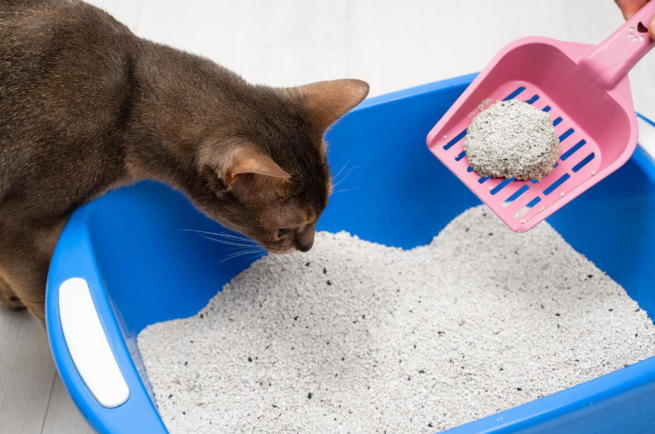
Many pet owners feel helpless when their cat is pooping on the bed without warning. The discovery of cat poop on your bed remains unpleasant but this behavior usually stems from specific causes. You need to identify the source of your cat's behavioral issues before you can handle the situation with understanding.
This article investigates the main factors which lead cats to begin defecating on your bed without warning. The following section contains advice about stopping this behavior. Your efforts to investigate the situation combined with necessary changes will help your pet return to using the litter box properly.
A sudden change in household routine might be why your cat is pooping on the bed. Your cat may start eliminating outside of their litter box because they feel insecure after moving homes or doing major renovations or rearranging furniture or changing their litter box. The unfamiliar environment makes them feel compelled to establish their ownership through marking.
Major environmental changes should be avoided whenever possible. You should implement environmental changes slowly to let your cat adapt to the new conditions. During times of change you should give your cat all their comfort items including their bed and toys and scratching posts and food bowls in their regular spots. Additionally, you should spend more time playing with them one-on-one to provide reassurance.
After any household changes make sure to keep the litter box accessible in a private area. Your cat may relocate to your bed if you relocate their litter box to an unfamiliar or hard-to-reach spot. Set multiple litter boxes throughout your home so your cat can reach one easily regardless of their current location.
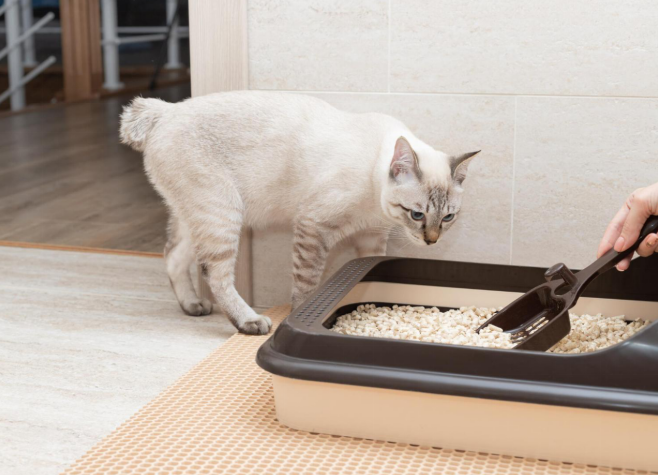
Having multiple cats while providing only one litter box creates potential difficulties. The standard recommendation states that each cat needs one litter box along with an additional one. Several cats will avoid sharing their litter box or they will be unable to reach it while another cat occupies it. When they lack suitable locations they will choose inappropriate spots such as your bed to relieve themselves.
To prevent litter box conflicts among your cats you should distribute multiple litter boxes throughout your home so each cat has their own private space. Daily scooping of waste from the boxes maintains cleanliness because cats prefer clean litter boxes. Test different types of litter to find ones that your picky cat will accept both in terms of texture and scent. Your cats will use their litter box more frequently when you create an attractive and convenient setup.
If your cat is pooping on the bed, the first step is to rule out any medical issues. A medical condition can exist as the root cause of litter box issues in house soiling cats. Medical conditions such as diarrhea and constipation alongside infections and joint pain and injuries create obstacles for cats to use their litter box effectively. Senior cats develop the habit of bed and carpet soiling because of kidney disease alongside cognitive dysfunction syndrome and arthritis and bowel/bladder control issues. For your cat’s proper diet, buy WOpet’s automatic feeder.
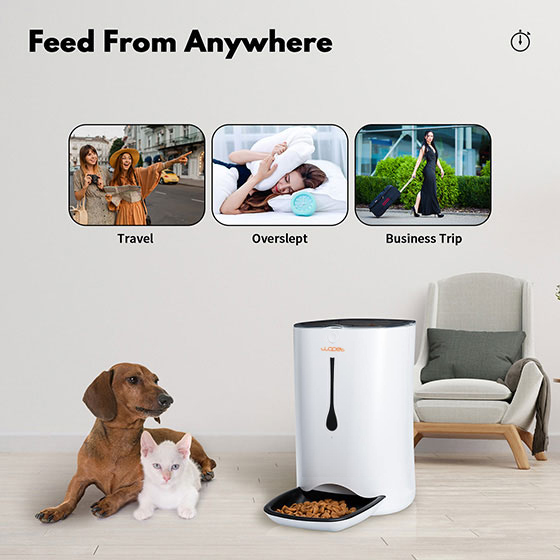
Take your adult cat to the vet for a checkup when they unexpectedly stop using their litter box to determine if medical problems exist. Regular veterinary examinations should be scheduled for senior cats because age-related health issues tend to develop gradually. Your veterinarian will provide personalized treatment recommendations for your cat after identifying a medical cause. Your elderly cat can experience better comfort through pain medication combined with dietary changes or supplements to help manage their diseases.
When your cat is pooping on the bed, it could be trying to tell you it feels unsafe. Several factors including changes in household routines and loud noises from construction or storms and new family members or pets and outdoor cats bullying them can trigger anxiety in cats. When a cat experiences stress they tend to stay away from their litter box because of frightening events occurring nearby or in adjacent rooms.
When possible you should work to detect and reduce the factors that create stress for your cat. Create a private space for your cat to use when they need to escape stress which should include food water and a litter box. To help your cat feel calmer you should consider using calming supplements together with pheromone diffusers and calming treats. Devote additional time to play and cuddle sessions with your cat to provide reassurance. Consult your veterinarian about severe anxiety symptoms.
Do you have a new pet at home? Cats display territorial behavior through indoor marking of objects and areas with urine or poop when they feel their space is under threat. The scent marks of cats stick to beds and other soft furnishings because these items have excellent absorption properties making them attractive targets.
Prevent your cat from seeing outdoor cats because this exposure may cause them to establish territorial markings. Draw your window coverings to prevent outdoor cats from being visible in your yard. When you bring a new pet home you should introduce them slowly to your existing cats to prevent overwhelming behavior. Your resident cats need access to all their regular sleeping areas along with their play spaces and scratching posts and perches to maintain their sense of security. Playing and cuddling your cat individually helps build their bond with you. Your vet can prescribe anxiety medication to help competing cats feel more relaxed.
A cat's negative experiences within the litter box such as pain or discomfort or unexpected events can lead to their avoidance of the box. When a loud noise startles them inside the box they will develop a fearful association with the enclosure. The pain from constipation or diarrhea during box use led to discomfort which made them stop using the box. Unhygienic conditions in the box can lead cats to stay away from using it.
Determine the factors that led your cat to stop using the litter box. If your cat is pooping on the bed, check whether the litter box is clean and accessible. Your cat will use the litter box more frequently when you maintain it in a spot that is both quiet and has low traffic. Test various types of litter to determine which ones your cat finds acceptable for direct elimination.
Cats maintain strong habits which cause them to experience stress whenever their daily patterns change. Has your absence from home become more frequent? Your work schedule changes have reduced your availability at home. Some cats develop feelings of distress because of these changes. Your cats view you as an important social group member so your unexpected long absences create distress. Your scent on their feces helps them calm down while they seek comfort through your scent to feel closer to you.

One major reason a cat is pooping on the bed is because of territorial stress. There may be subtle shifts in the social structure or environment that triggered competitions over resources like food bowls, litter boxes, favored sleeping spots and human attention. The ongoing tension can cause subordinate cats to start marking territory like beds with poop or urine.
Figure out which cats are not getting along and the possible sources of conflict. Make sure you have enough litter boxes, food bowls placed far apart from each other, high perches, cat trees and beds so each cat has their own designated spots and resources.
Cats sometimes defecate on beds to gain attention from their owners particularly when they feel unattended. They understand that this improper elimination behavior will make you pay attention to them. Your cat may start misbehaving when you begin a new job or welcome a new baby or pet or when you travel often because they feel neglected.
Devote daily individual play sessions and cuddle time to your cat because this prevents them from misbehaving to gain your attention. Maintain their daily schedule in a steady manner whenever possible.
The sudden change of your cat from using the litter box to defecating on your bed will naturally make you feel frustrated. Instead of scolding your cat you should show patience to understand what drives their behavior.
Your cat engages in inappropriate elimination to communicate their stress or anxiety or physical discomfort or frustration. Don’t ignore it when your cat is pooping on the bed—it’s often a cry for help.
Label:
Popular Post

What to Feed a Sick Dog With No Appetite? [2025 Guide]
May 16, 2023
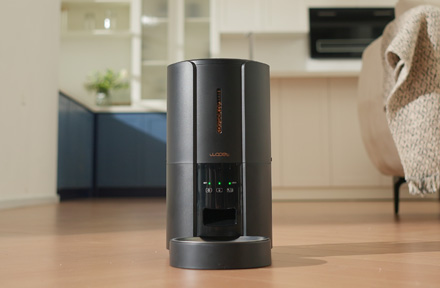
Troubleshooting Common Issues with Automatic Pet Feeders: Tips & Tricks for Pet Owners
Oct 26, 2023

Why Does My Cat Cough After Drinking Water? 8 Potential Reasons
Mar 13, 2023
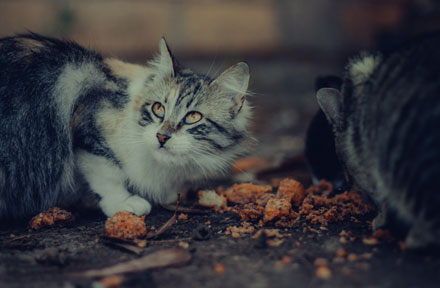
My Cat Only Eats A Little at A Time - What to Do?
Feb 27, 2023
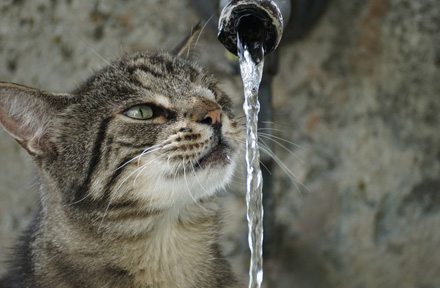
Why is My Cat Throwing up Water? Top 5 Causes Here
Feb 08, 2023
$99.99
$129.99
Copyright © 2025 WOPET. All Rights Reserved.